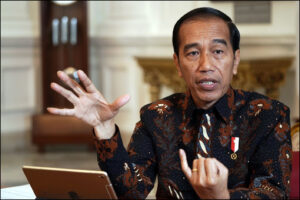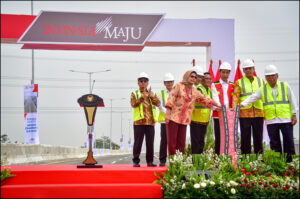Govt To Use Jokowi’s Open Promotion System
The Indonesian government is set to implement President Joko Widodo’s Open Promotion System as part of its ongoing efforts to foster transparency and meritocracy within the country’s civil service. This new system aims to revolutionize the traditional promotion process by providing equal opportunities for eligible individuals based on their performance and competence, rather than favoritism or political connections.
What is the Open Promotion System?
The Open Promotion System, introduced by President Jokowi, seeks to address long-standing issues related to corruption and nepotism in the civil service sector. It promotes a fair and unbiased approach in career advancements for government employees across various departments.
This new system utilizes a comprehensive evaluation method that includes an assessment of job performance, skills development, additional qualifications, and years of experience. By focusing on these objective criteria, the Open Promotion System aims to identify and reward competent individuals who can effectively contribute to the nation’s progress.
Transparent Selection Process
One of the key advantages of the Open Promotion System is its transparent selection process, which ensures that all eligible candidates have an equal chance of being promoted. This system emphasizes fair competition based on merit, enabling deserving individuals to advance their careers without bias or discrimination.
Under this new system, each candidate’s performance will be thoroughly evaluated through a combination of assessments, such as tests, interviews, and job-related simulations. The evaluation process will be conducted by an expert panel consisting of professionals from various related fields. This ensures that objectivity and expertise are at the heart of decision-making when it comes to promotions.
A Paradigm Shift Towards Meritocracy
The implementation of President Jokowi’s Open Promotion System reflects a paradigm shift in Indonesia’s civil service culture – from one entrenched in patronage and favoritism to a more merit-based approach. By adopting this system, the government aims to establish a more efficient bureaucracy that rewards hard work, competence, and dedication rather than personal connections or political influence.
This shift towards a more meritocratic system is expected to motivate civil servants to improve their skills and performance continuously. Knowing that their promotions are based on merit rather than subjective factors will encourage employees to invest in their professional development and contribute actively to their respective roles within the government.
Benefits for Public Administration
The implementation of an Open Promotion System brings several potential benefits for public administration:
- Transparency: With clearly defined criteria for promotion and an unbiased selection process, transparency within public administration increases significantly. This fosters trust among civil servants and enhances overall accountability within the government.
- Improved Productivity: By promoting employees based on their skills and capabilities, rather than personal connections, the Open Promotion System encourages a more productive and efficient workforce. This ultimately leads to better public service delivery and improved governance.
- Reduced Corruption: By minimizing opportunities for corruption and favoritism in the promotion process, this system helps combat corruption within the civil service sector. It strengthens integrity and instills a sense of fairness among civil servants.
Challenges and the Way Forward
Implementing an Open Promotion System poses several challenges that need to be addressed for its successful implementation:
- Evaluation Standardization: To ensure fairness, it is crucial to establish standardized evaluation criteria that can be applied uniformly across different departments. This would require close coordination between relevant stakeholders and experts in various fields.
- Building Expertise: The success of these evaluations heavily relies on having a competent panel of experts who possess deep knowledge in their respective fields. It is essential to invest in building expertise within the civil service to conduct these assessments effectively.
- Culture Change: Shifting from a system driven by favoritism to one focused on meritocracy requires a fundamental change in the culture and mindset of both civil servants and society at large. Continuous education and awareness campaigns are necessary to facilitate this change.
In Conclusion
The implementation of President Jokowi’s Open Promotion System marks a significant step towards fostering transparency, fairness, and meritocracy within Indonesia’s civil service sector. By establishing clear evaluation criteria based on performance, skills development, additional qualifications, and experience, this system aims to weed out corruption and favoritism, ultimately strengthening public administration and governance in the country.
While challenges remain, investing in the necessary infrastructure, expertise, and cultural change will pave the way for a more efficient and accountable civil service that rewards hard work and competence. With this shift towards an Open Promotion System, Indonesia sets itself on a path towards a brighter future where opportunities are equal and merit is duly recognized.





